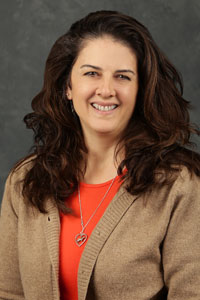
Patience is one of those things that is wonderful if it is being given to me or my situation. On the other hand, it can be grueling to find the right level of patience when the roles are reversed.

I will admit that patience is a virtue that is more challenging for me. I have ample patience when training an employee who is starting a new position on the farm. That person will take some time to learn the new position and the expectations that go with the job.
Experience has taught me to wait for the right amount of time before helping a calving cow. As much as I want the calf to enter the world quickly, some waiting needs to happen so the mother is dilated properly to have the calf without issues.
However, when it comes to deciding when is the best time to start cutting rye or hay, Duane is the best one on the farm to answer those questions. He is the true expert in this area, and after years of trial and error, he has a truck load of patience to make the best decision.
He looks at the decision from all angles. Sometimes he pushes to get things done, but more times than not, he patiently waits for the right time. Waiting is difficult for those of us that want action. I am not saying that Duane does not like action. He is just better at waiting for the most perfect time to take action.
Duane has patience because he knows that bringing in the best quality forage, mowing the hay at the most optimum time, or planting corn in the best quality soil makes a big difference in the feed that is put in the trench. Milk production and components are critical to more efficiency.
It is especially difficult for me when I look over the fence and see our neighbors moving ahead with their fieldwork. What do they know that I have not figured out? I suppose they have their own methods and reasons that make sense for them.
Thankfully, Duane does a good job taking care of the cropping decisions, so I can take that off of my list. However, that does not mean I am off of the hook for developing more patience. I have my own experiences that help me flex my virtue.
A situation that really stretched my patience is when I started traveling to the Food and Agriculture Organization (FAO) in Rome to talk about dairy farming in the United States. Rome is an amazing city to visit with history in every nook and cranny; however, when it comes to getting work done quickly, my expectations need to be more realistic. Quickly is not part of the plan.
The FAO is a unique organization that is an umbrella for governments across the globe. The voice of the United States is critically important in that arena, and farmers’ voices are important, too.
For many years, the dairy industry did not focus on or take time to participate in discussions at the FAO. We let others define who we are and how we should farm. We knew it was happening, but there was not a strong effort to change the perception.
Today’s culture is different, and things we used to let roll in the past need to be addressed. Rather than put ourselves in defense mode, it is better to have a plan where we are strategic in our communication about dairy farming.
A big part of that strategy is to bring farmers to the FAO so we can tell the U.S. farming story ourselves. We need to develop relationships that enable us to continue with farming practices that make sense for dairies in the United States.
When I went to my first meeting, I soon realized that I needed to pull out every ounce of patience I have. Decisions and discussions move at the speed of molasses. Unless, of course, it is the molasses that spills from the tank on our farm. That molasses moves fast.
One of the most rewarding and effective factors of attending FAO events is developing relationships and alignments with like-minded people from various countries. Now that I have been attending for several years, I see a difference in the ear that is given to farmers from the diplomats who are making decisions. They care more about our discussion and the importance of food security in the world. They hear us out when we talk about nutrition. They sincerely want to know about our sustainability practices and the way we farm.
Are they always making decisions the way I want? No, but that does not happen on my farm, either.
This is not one organization or one group; there are many voices that are adding to this effort. The relationships and discussions nurtured will have long-lasting consequences on our dairy farmers, people who need food, and our planet.
Patience is critical in a place where decisions are slow and change is slower. But when I see progress, as I did during my last visit, I know that patience and relationships are paying off. This is a grueling process that will, in time, be a wonderful step for dairy farmers across the globe — but it will take patience.




